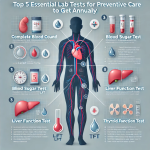
Alzheimer’s disease is a progressive neurodegenerative disorder that primarily affects the elderly, leading to cognitive decline, memory loss, and ultimately, loss of independence. While much is known about the symptoms and progression of Alzheimer’s, the origins of the disease are still being unraveled. Recent research suggests that the roots of Alzheimer’s may trace back to early brain development, offering new insights into its prevention and treatment.
Understanding Alzheimer’s Disease
Overview of Alzheimer’s
Alzheimer’s disease is characterized by the accumulation of amyloid-beta plaques and tau tangles in the brain, leading to neuronal damage and brain atrophy. The disease typically presents with mild memory loss, progressing to severe cognitive and functional impairment. While age is the most significant risk factor, genetics, lifestyle, and environmental factors also play crucial roles.
See Here:
Current Theories on Alzheimer’s Origins
Traditional theories suggest that Alzheimer’s originates from processes occurring later in life, such as oxidative stress, mitochondrial dysfunction, and chronic inflammation. However, emerging evidence points to a developmental component, indicating that the seeds of the disease might be sown much earlier than previously thought.
Developmental Origins of Alzheimer’s
Genetic Factors
Genetic mutations, particularly in the APP, PSEN1, and PSEN2 genes, have been linked to early-onset Alzheimer’s. These mutations can disrupt normal brain development processes, leading to vulnerabilities that manifest as Alzheimer’s in later life. Studies on families with a history of early-onset Alzheimer’s have provided critical insights into how these genetic variations influence brain development.
Prenatal and Early Life Influences
Prenatal and early life factors, including maternal health, nutrition, and exposure to toxins, can impact brain development and potentially predispose individuals to Alzheimer’s. Research has shown that adverse conditions during critical periods of brain development may alter neural circuits, making the brain more susceptible to Alzheimer’s pathology later in life.







